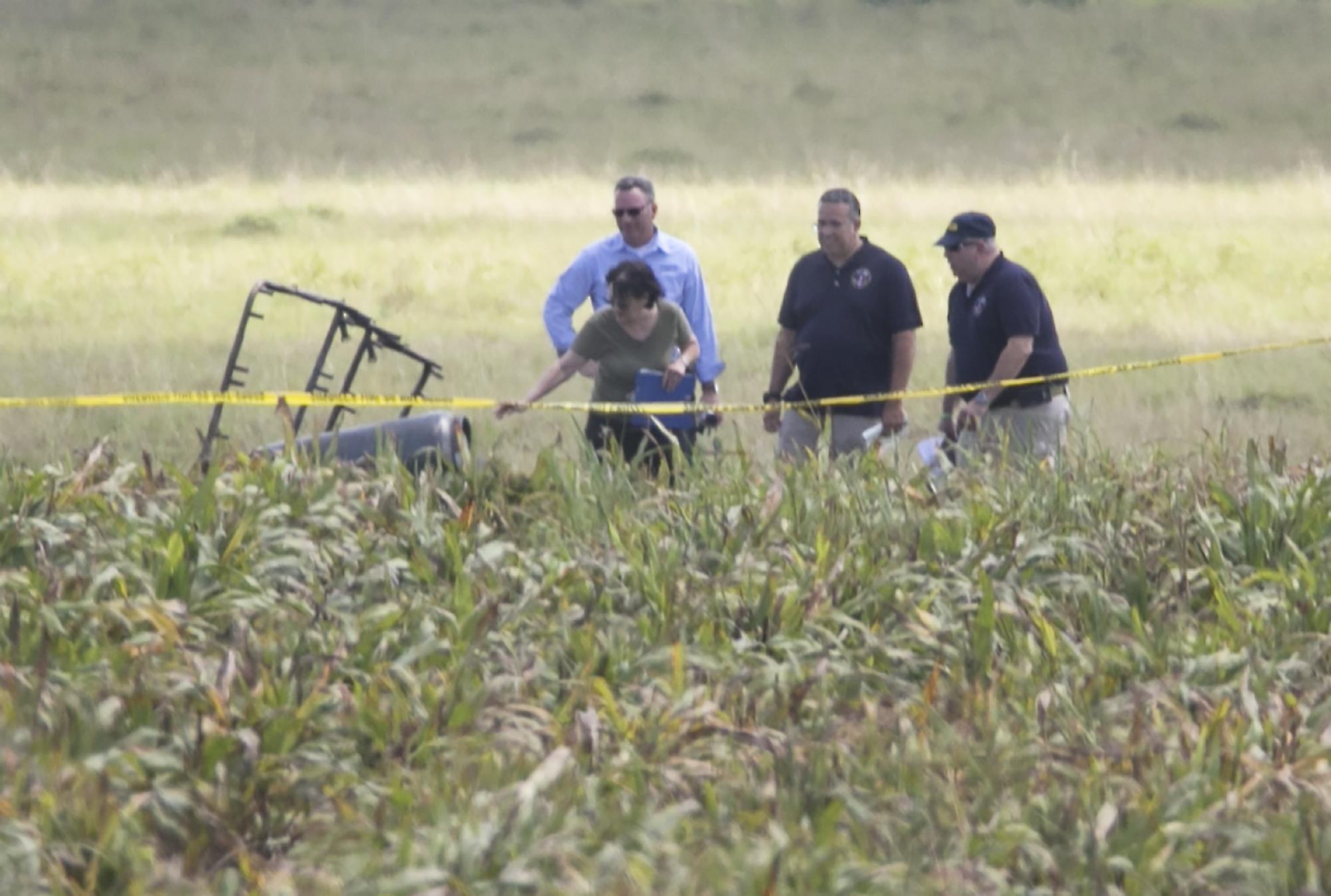Texas hot air balloon crash: pilot had history of drink-driving arrests, former girlfriend says
Among the victims of the crash were newlyweds Matt and Sunday Rowan, who had bought tickets for the flight as a birthday treat

The pilot of a hot air balloon that crashed in Texas on Saturday, killing all 16 people on board, was a recovering alcoholic who had previously been arrested for drink-driving, while his former balloon touring company was the subject of warnings from a consumer protection organisation.
Authorities have yet to name the victims of the accident, the deadliest hot air balloon crash in US history, but the pilot Alfred “Skip” Nichols, was identified by friends. On Monday, his former girlfriend said Nichols was a recovering alcoholic with a history of drink-driving arrests. Wendy Bartch told the Associated Press that Nichols had been sober for at least the last four years, and that he would never have piloted a balloon after drinking. “He did not fly when he wasn't supposed to,” Ms Bartch said.
Alan Lirette, Nichols' friend and roommate in Kyle, Texas, said he was “a great pilot”.
A Missouri police officer told the news agency that he believed Nichols, 49, was the same man who had been arrested in that state in 2000 and pleaded guilty to a misdemeanour charge of driving while intoxicated. At the time, Nichols owned a hot air balloon touring firm in St Louis County, Missouri. In 2008, the St Louis Post-Dispatch reported that a consumer protection non-profit, the Better Business Bureau, had warned that Nichols’ company had a record of failing to respond adequately to customer complaints.
The balloon that crashed on Saturday was operated by Nichols’ current company, Heart of Texas Hot Air Balloon Rides, which has since suspended its operations. Robert Sumwalt, a spokesman for the Nation Transportation Safety Board (NTSB), told reporters the balloon was believed to have struck high-tension power lines before crashing into a field near the town of Lockhart, some 30 miles south of Austin in Central Texas. Mr Sumwalt said it remained unclear whether a fire in the balloon’s basket had broken out before or after the collision.
The passengers reportedly met Nichols in a supermarket car-park at 5.45am, before being driven to a local airpark, where the balloon took off some 20 minutes after the scheduled time of 6.45am. The ground crew communicated with the balloon by phone and the pilot navigated using an iPad, investigators said. The FBI recovered 14 personal electronic devices from the scene of the crash, which occurred about eight miles from the take-off point. The balloon is thought to have struck the power lines at 7.42am, about a minute before the first emergency call was placed.
Newlyweds Matt and Sunday Rowan, both 34, were among the victims. Ms Rowan had bought tickets for the flight as a birthday gift for her husband, whose brother Josh Rowan said the couple had texted family members and posted images of the balloon on social media before the crash. The Rowans, who lived in San Antonio, were married in February. “They were really happy and they were in love and they were really starting a life together,” Josh Rowan said.
Another couple, Joe and Tresa Owens, were also killed in the crash, family friend Tricia James told CNN. Ms James, who created a GoFundMe page to raise money for the couple’s funeral, wrote that the Owens “adored their children and grandchildren, and loved nothing more than spending time with them.”
Until now, the deadliest hot air balloon accident in the US was a 1993 crash in Colorado, in which six people were killed. In 2014, the NTSB lobbied the Federal Aviation Administration to tighten its rules on hot air balloon operators, warning of the possibility of a “high number of fatalities in a single air tour balloon accident.” However, it is as yet unclear whether the agency’s recommendations would have prevented Saturday’s crash.
Subscribe to Independent Premium to bookmark this article
Want to bookmark your favourite articles and stories to read or reference later? Start your Independent Premium subscription today.

Join our commenting forum
Join thought-provoking conversations, follow other Independent readers and see their replies